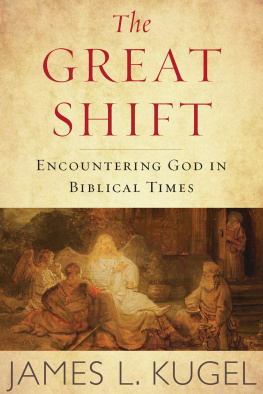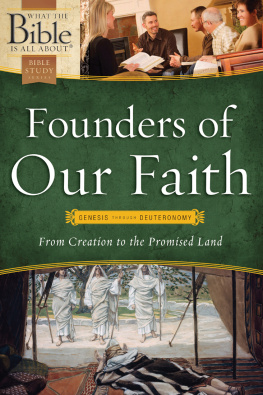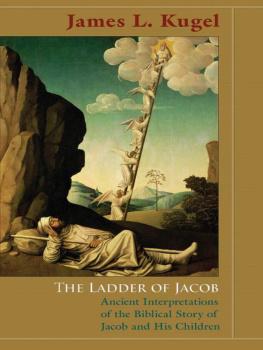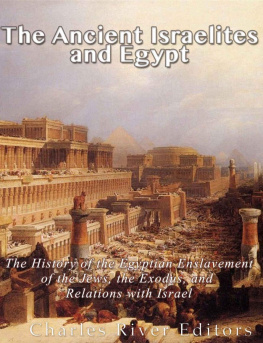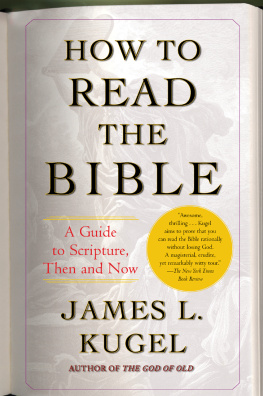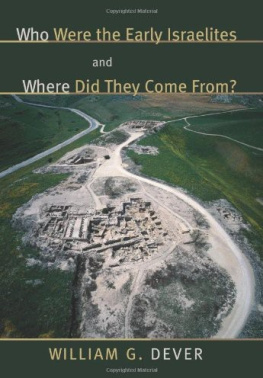Copyright 2017 by James L. Kugel
All rights reserved
For information about permission to reproduce selections from this book, write to or to Permissions, Houghton Mifflin Harcourt Publishing Company, 3 Park Avenue, 19th Floor, New York, New York 10016.
www.hmhco.com
Library of Congress Cataloging-in-Publication Data is available.
ISBN 978-0-544-52055-4
Cover design by Martha Kennedy
Cover illustration: Abraham Receives the Three Angels, 1646 (oil on panel), Rembrandt Harmensz. van Rijn (160969)/Aurora Trust/Bridgeman Images
Parchment image: mammuth/Getty Images
e ISBN 978-0-544-52057-8
v1.0817
Maps on are from How to Read the Bible: A Guide to Scripture Then and Now by James L. Kugel. Copyright 2007 by James L. Kugel. Reprinted by permission of Free Press, a division of Simon & Schuster, Inc. All rights reserved.
To R., as always
Timeline of Major Figures and Events
Israels Remote Ancestors
Abraham and Sarah, Isaac and Rebekah, Jacob and his wives | (dates uncertain) |
Moses and the Exodus | 13th12th centuries BCE |
Joshua and the entrance into Canaan; Deborah, Samson, and the other Judges | 13th11th centuries BCE |
First Temple Period, ca. 1000 to 586 BCE
Saul becomes king of Israel | late 11th century BCE |
King David (founder of the United Monarchy) | ruled ca. 1010ca. 970 BCE |
King Solomon | ruled United Monarchy ca. 970ca. 930 BCE |
King Rehoboam succeeds Solomon; breakup of the United Monarchy | late 10th century BCE |
Separate kingdoms of Judah (in the south) and Israel (in the north)
The prophets Elijah and Elisha | 9th century BCE |
The prophet Amos | early to mid 8th century BCE |
Hosea, Isaiah, and Micah prophesy; Assyria threatening | latter half of 8th century BCE |
Fall of Israel (Northern Kingdom) to Assyria | 722721 BCE |
Henceforth, Bibles focus is on Judah (Southern Kingdom)
Josiah becomes king of Judah | 641640 BCE |
Jeremiah begins prophesying | 627626 BCE |
King Josiah dies; Neo-Babylonian Empire begins actively threatening | 609 BCE |
Babylonians deport King Jehoiachin and many prominent Jerusalemites (including the prophet Ezekiel) to Babylon | 597 BCE |
Fall of Jerusalem to Babylonians; mass deportation of Judeans to Babylon; Jeremiah and Ezekiel major prophets | 587586 BCE |
Babylonian exile and aftermath
After Cyruss Persian Empire takes over Babylon, exiled Judeans begin to return to their homeland | late 6th century BCE |
Second Temple period, ca. 530 BCE to 70 CE
Persians rule province of Judah until decisive Battle of Issus, when Alexander the Great conquers entire region | 333 BCE |
Judah/Judea ruled by Egyptian Ptolemies | from 323 BCE |
1 Enoch; Book of Jubilees | late third, early second century BCE |
Syrian Seleucids take over Judea from Ptolemies | 198 BCE |
Book of Ben Sira written | ca. 180 BCE |
Revolt of the Maccabees ousts Seleucids, leading to Jewish self-rule | 16663 BCE |
Origins of Dead Sea Scrolls community | second half of second century BCE |
Pompey conquers Jerusalem to start Roman rule | 63 BCE |
Jewish revolt against Romans ends in defeat | 6670 CE |
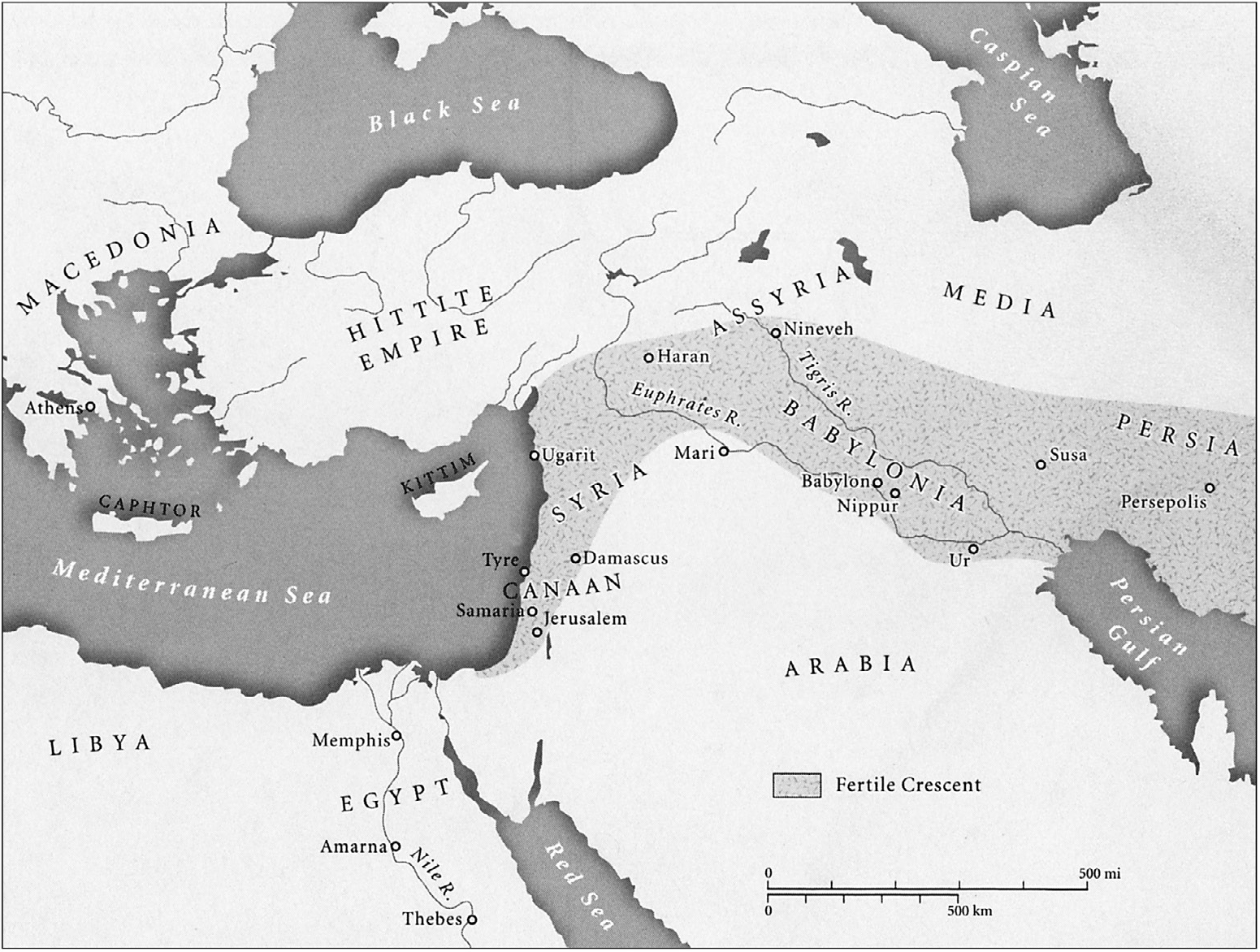
The Ancient Near East
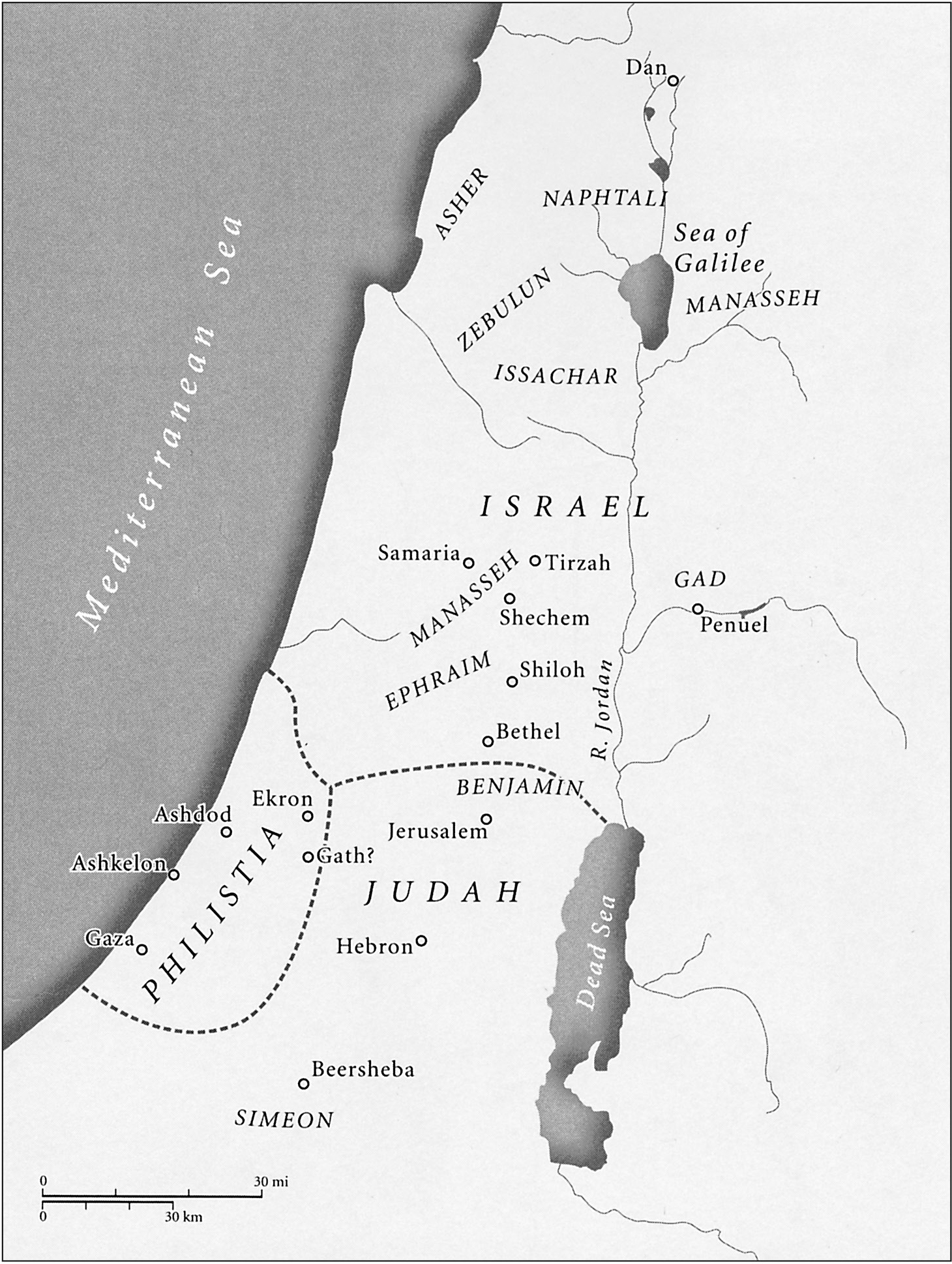
Israel and Judah
Foreword
I have spent most of my adult life researching and teaching the Hebrew Bible. For more than twenty years I taught at Yale and Harvard Universities, and another ten years at Bar-Ilan University in Israel. It has been a real pleasure teaching the students in these places, but Ive never lost sight of my main purpose in going into this field. I wanted, as much as possible, to get inside the biblical world and see what ancient Israelites saw, to enter their minds in order to understand what the Bible is really saying. Over the years, Ive written books on various topics, but Ive saved for this last one what seems to me the most important question of all:
Modern scholars know that in biblical times, people did not believe in God in the way they do now. In truth, there is not a single verse in the Hebrew Bible that suggests that Gods existence was a matter of belief or faith, and it certainly was not the subject of debate or questioning. (True, biblical figures are sometimes said to believe in God in the sense that they put their trust or faith in Gods readiness to intervene on their behalf, believing that He will help them. But it was not Gods existence that was believed in; that was simply obvious.) Moreover, the whole way in which these encounters took place seems quite foreign to the experience of most of us today. My aim in the present study is to try to understand why this is so. The question I wish to answer, using all that we now know about biblical Israel and its neighbors, is: What was the actual, lived reality of God in biblical times, and why have most people lost it today?
A word of caution to begin with: this book is not for everyone. Many of the things that modern scholars have discovered about the Bible go against the established religious doctrines of Judaism and Christianity. This can be quite disturbing for some readers. Even among university researchers, there are those who try to put their own spin on recent discoveries, consciously or otherwise seeking to salvage what they can of traditional teachings. On the other extreme, there are certainly some contemporary scholars who see their mission as debunking everything people used to believe about the Bible. My own program here is to avoid either approach. What I wish to do is to make use of everything modern scholars have discovered about the Bible and the ancient Near East (as well as a few other topics) and to try to use these insights, along with a little imagination, in order to enter the world of the Bible as fully and truly as possible, to see things as they were seen then.
To do this, however, is to pursue a moving target, because even within the biblical period (roughly a thousand years long), things changed. If you go back far enough in biblical history, you find yourself in a very different world. How can someone make sense, realistic sense, of the things that people say and do in the Bible? One of the most common features in the writings of ancient Israels prophets and sages is the assertion that God speaks, indeed, speaks to them: The word of the L ORD came to me, saying...; Thus says the L ORD ...; And the L ORD spoke to Moses, saying... What did they mean by thisdid a voice just pop into their heads? God does not seem to speak in this way to people today. True, some people seek divine guidance or advice in prayer or meditation, and an answer sometimes emerges in their minds. But this is rather different from divine speech in the Bible, where the people involved are not usually seeking to hear from God; often, in fact, they flee at the very prospect. When God addresses Moses out of the burning bush, Moses hid his face, because he was afraid to look at God. He tries to turn down the mission that God has reserved for him: Please, he begs, send someone else. Later, when God reveals Himself to the Israelites assembled at Mount Sinai, all the people saw it and fell back and stood at a distance; You be the one to speak to us, they said to Moses, and we will obey, but do not let God speak to us, lest we die (Exod 20:1516; some Bibles, 20:1819). Prophets summoned by God similarly react by saying, Please find someone else: this is basically what Jeremiah says when God first calls him, and other prophets are likewise reluctant. In fact, the prophet Jonah didnt say anything; when God called him, he hopped the next ship to faraway Tarshish, hoping God would simply forget about him.

